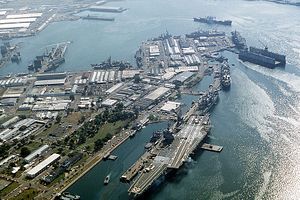A few curated defense and security links for the mid-week:
An unnamed U.S. Marine is being investigated for allegedly killing a transgendered person in the Philippines. Filipino activists are calling for the incident to be labeled a “hate crime,” and for the Philippines government to additionally reject the Visiting Forces Agreement that the two countries signed in 1999. The apparent killing has drawn several activist groups to the fore, including international LGBT organizations. This incident comes after a new defense pact that U.S. President Barack Obama concluded during his visit to the Philippines in April this year came under siege concerning its legality and constitutionality by a group of opposed Philippines legislators, academics, and activists. The incident hearkens back to the 2005 Subic rape case which led to a U.S. Marine being found guilty of rape and being sentenced to 40 years in prison — that incident prompted widespread protests over the military relationship between the U.S. and the Philippines. The incident led to a dip in bilateral relations with the United States canceling a scheduled joint exercise in 2007 in connection with the 2006 verdict.
IHS Jane’s 360 casts light on newly released images of China’s Chengdu J-10B fighters. The J-10B is a variant of the J-10 with improved hnalding, a reduced weight and radar cross-section, and a longer nose.
North Korea’s official Korean Central News Agency reports that the remains of U.S. troops killed in North Korea during the Korean War of 1950-1953 could be lost amid construction work. Over the years, North Korea has used the remains of U.S. soldiers from the Korean War as a bargaining chip with the United States. In the early 1990s, the United States essentially provided North Korea with cash aid for the return of the remains of U.S. troops. The current move by the North is likely intended to pressure the United States into bilateral negotiations.
A detailed Bloomberg report takes a look at why Putin might be nailing Russia shut in a coffin by growing increasingly dependent on China: “Russia’s growing dependence on China, with which it spent decades battling for control over global communism, may end up strengthening its neighbor’s position in the Pacific while hastening its own economic decline.”
A Defense News report sheds light on just how prevalent Chinese espionage is in Taiwan, despite improving relations. Part of the problem is Taiwan military officers voluntarily selling Beijing information.

































